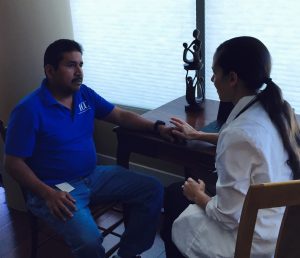integrative mental health
COMBINING CONVENTIONAL & ALTERNATIVE TREATMENTS
what is integrative medicine?
Integrative Medicine is the intelligent combination of traditional conventional medicine combined with evidenced based complimentary and alternative treatments. It is a real movement and in essence the goal is restoring the focus of health care onto health, healing and prevention and away from disease management and mere symptom control.
what happens at a consult?
 An Integrative mental health consultation is a visit that explores the issues a patient wants to address within the context of all aspects of their life. The consult begins with a comprehensive history that takes into account early life, family dynamics, adverse childhood events, heredity, culture, community, belief systems and traumas. I am committed to: a mutual partnership, to identify the causes of suffering, and to explore avenues to resolve them.
An Integrative mental health consultation is a visit that explores the issues a patient wants to address within the context of all aspects of their life. The consult begins with a comprehensive history that takes into account early life, family dynamics, adverse childhood events, heredity, culture, community, belief systems and traumas. I am committed to: a mutual partnership, to identify the causes of suffering, and to explore avenues to resolve them.
integrative medicine and prescription medications
Integrative mental health care does not reject, nor does it discount, the benefits of the use of prescription medications, psychotherapy, or other mainstream approaches widely used in psychiatry. Conventional medications and psychotherapy are used when indicated. Evidenced based complementary and alternative therapies are preferred. Practice is based on the best available evidence from conventional, complementary and alternative medicine models.
Use of the “Integrative Model” has been driven by the high cost of many psychiatric medications and their growing list of safety concerns. The conventional psychiatric model, which frequently includes a diagnosis and a drug treatment regimen often fails to produce remission, true healing and/or transformation. Due caution must be used with all therapies, conventional and alternative.
Mental health is a key determinant of wellness and research firmly supports that it is heavily influenced by lifestyle factors such as chronic stress, trauma, sedentary lifestyle, poor nutrition, obesity, substance abuse, and social isolation. Thus, the integrative mental health model includes a wide range of non-medication treatment approaches. These therapies can incorporate herbs, supplements, whole-body approaches like exercise, dietary changes, talk therapy, spiritual counseling, mind-body practices and energy therapies like acupuncture to name a few.
Because integrative care focuses on each person’s unique needs, treatment is highly individualized. This means that there is no single “best” treatment for any particular mental health problem. Each patient may have a “most appropriate” treatment plan depending on the particular symptoms they are experiencing in the context of their unique life story, values, circumstances and personal preferences.
